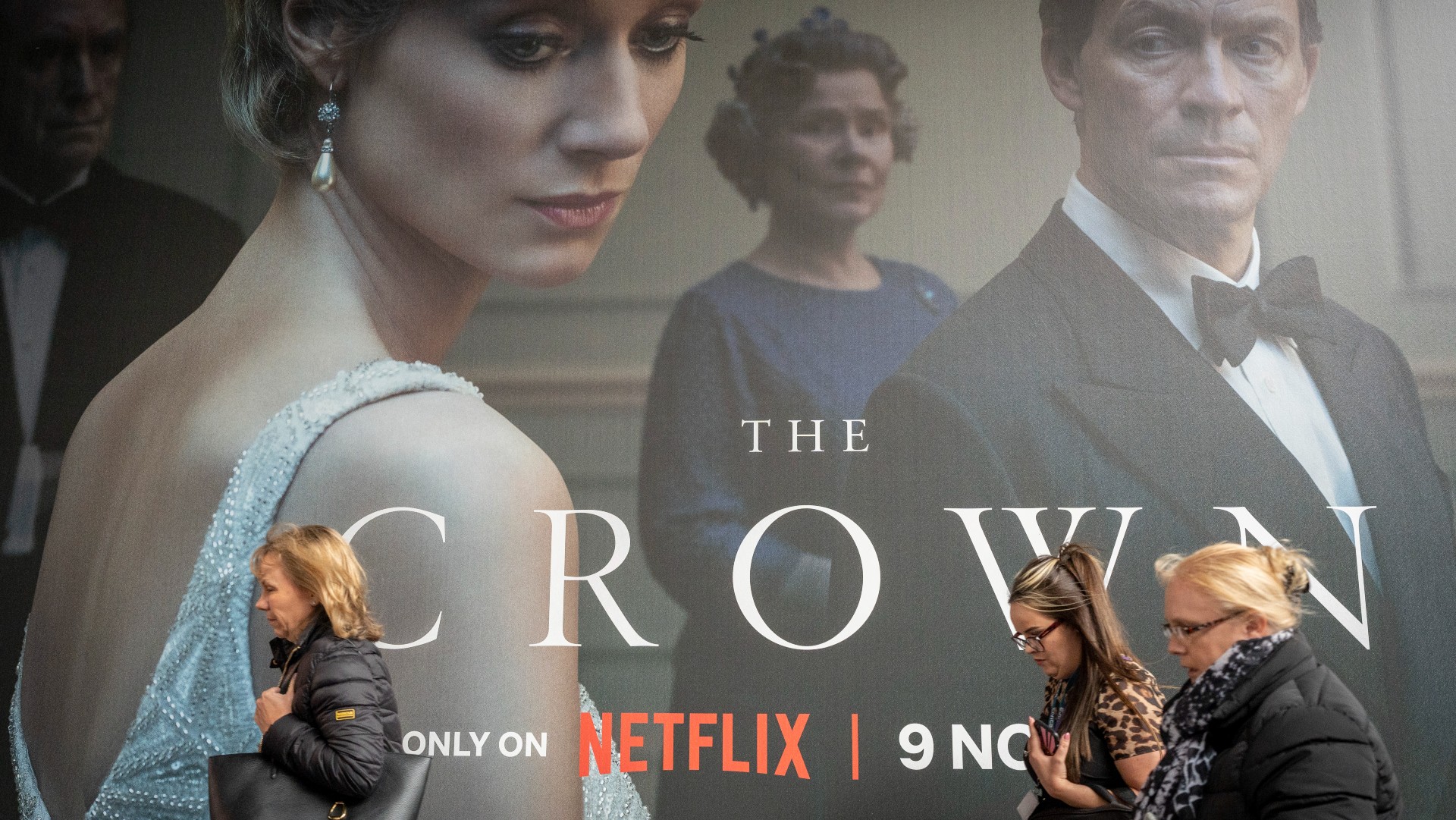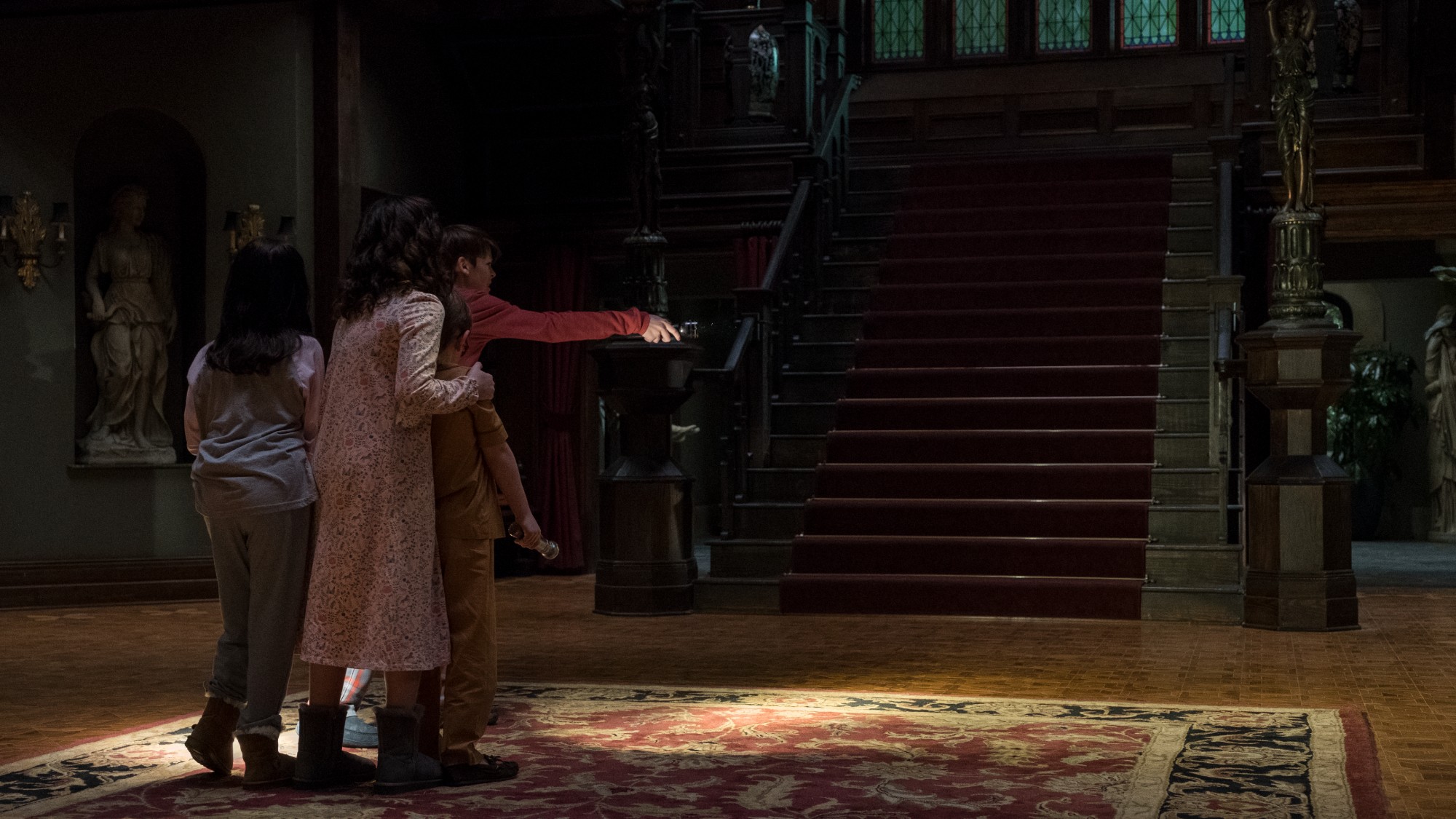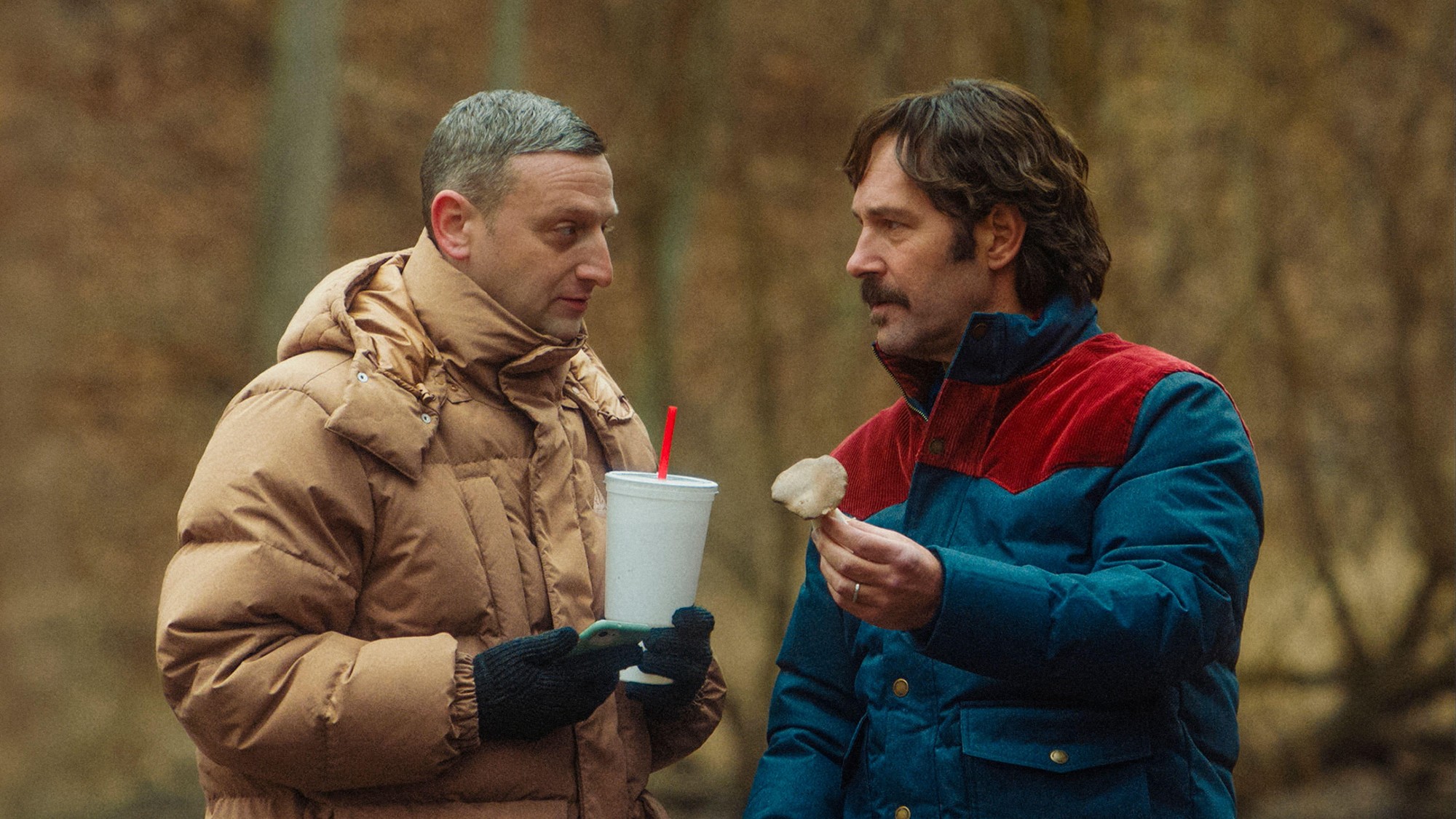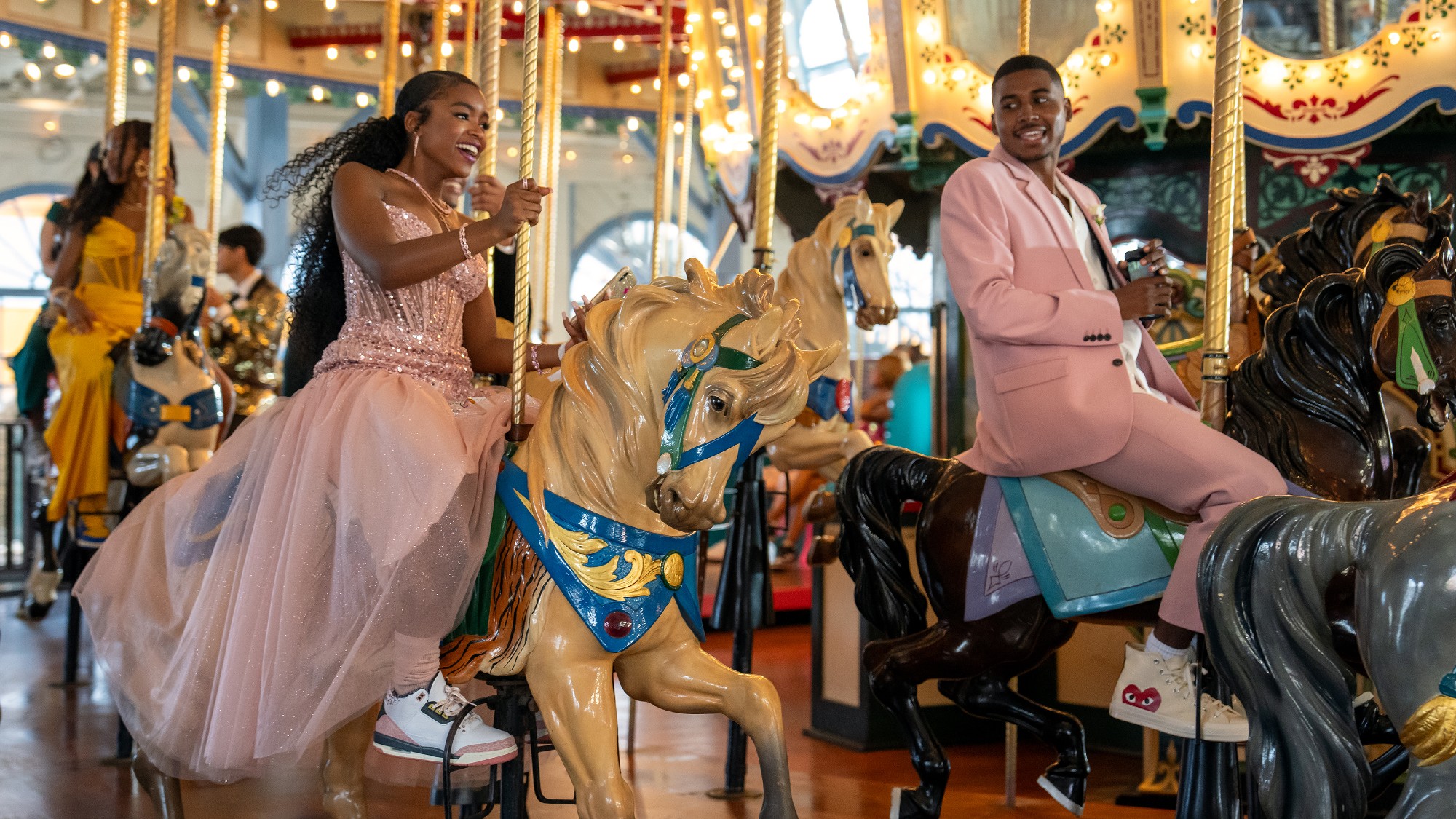Princess Diana’s death in The Crown: how accurate is the Netflix series?
The controversial show is returning for sixth and final season later this year

A free daily email with the biggest news stories of the day – and the best features from TheWeek.com
You are now subscribed
Your newsletter sign-up was successful
The upcoming final season of “The Crown” will cover Princess Diana’s death “delicately”, according to the show’s makers.
Executive producer Suzanne Mackie said the team behind the Netflix series had “a very, very careful, long, long, long conversation” about the depiction of the 1997 car crash in Paris that claimed Diana’s life at the age of 36. “I hope, you know, the audience will judge it in the end, but I think it's been delicately, thoughtfully recreated," Mackie added during a panel event at the Edinburgh TV Festival last week.
Critics of “The Crown” have previously accused the show of being both “too accurate” and “too distorted” in its depiction of the Royal Family and historical events, said Aja Romano in Vox. The streaming giant’s “messiest prestige drama enjoys a fraught relationship to reality”, Romano added, but Netflix “has so far declined to add a clarification to the show credits”.
The Week
Escape your echo chamber. Get the facts behind the news, plus analysis from multiple perspectives.

Sign up for The Week's Free Newsletters
From our morning news briefing to a weekly Good News Newsletter, get the best of The Week delivered directly to your inbox.
From our morning news briefing to a weekly Good News Newsletter, get the best of The Week delivered directly to your inbox.
How accurate is The Crown?
Previous series of the show have included real-life storylines including the institutionalisation of Queen Elizabeth’s cousins Nerissa and Katherine Bowes-Lyon, who born with developmental disabilities; the Welsh mining disaster of Aberfan in 1966; and the 1979 assassination of Lord Mountbatten by the IRA.
The line between fiction and fact has been more blurred in the depiction of events such as the affair between Charles and Camilla Parker-Bowles, which the show suggested had not fully ended when the then prince began dating Diana.
And some events have been wholly fabricated. Winston Churchill's assistant, Venetia Scott, who died after being struck by a bus in Season 1, wasn’t a real person.
The depiction in Season 4 of Charles and Diana’s first meeting, where she was dressed in a costume from “A Midsummer Night’s Dream”, was also a “work of fiction”, said Harper’s Bazaar
A free daily email with the biggest news stories of the day – and the best features from TheWeek.com
The show’s most “iconic scenes” have tended to be those that, that for obvious reasons, weren't documented, said Town & Country. Since “no one has access to the royals’ most intimate conversations”, these scenes may be “decidedly inaccurate”, yet they can still be “representative of emotions that were real”.
After all, “there are two sorts of truth”, said Robert Lacey, “The Crown’s” historical consultant. “There’s historical truth and then there’s the larger truth about the past,” he told the magazine.
Should a line be drawn between fact and fiction?
Some critics have accused Netflix of being not only “insensitive to historical accuracy” but also “damaging” the monarchy, said Harper’s Bazaar.
“We already know that the royals are much less popular with this generation,” royal commentator Pauline Maclaran, a professor of marketing at the University of London, told the BBC. Some viewers might regard “The Crown” as a “quasi-documentary”, she said, particularly younger or overseas audiences who may be less familiar with the historical events depicted.
Romano agreed on Vox that “because it’s so often right, the show’s fictional liberties merge seamlessly with the truth and make it easy to take the whole series as gospel”.
But others argue that to assume audiences can’t distinguish between fact and fiction is patronising. Claudia Harrison, who plays Princess Anne in the fifth season of the show, told The Guardian that “to think people are genuinely sitting down thinking this is a documentary and that everything they see is fact, I feel uncomfortable with that”.
“Patronise an audience at your peril,” Harrison added.
The show makers have insisted that their role is to entertain, not educate.
Dame Judi Dench, a friend of Camilla, has described “The Crown” as “crude sensationalism”. In a letter to The Times last year, the actor – who has portrayed Queen Victoria and Queen Elizabeth I on screen – said the Netflix series was “cruelly unjust”.
Politicians have also weighed in with similar criticisms. In 2020, then culture secretary Oliver Dowden called on Netflix to display a “health warning” before “The Crown” aired. “It’s a beautifully produced work of fiction, so as with other TV productions, Netflix should be very clear at the beginning it is just that,” he told The Mail on Sunday.
Former prime minister John Major, who was depicted in Season 5, has called the show a “barrel-load of nonsense”. In a letter to The Telegraph last November, the former Tory leader warned that “fiction should not be paraded as fact”.
Tony Blair also lashed over his own portrayal in the last season, in scenes that the former Labour PM said were “complete and utter rubbish”.
But ultimately, said Romano in Vox, surely “The Crown”is just “doing what every work of historical fiction does: striving for accuracy while allowing itself some creative licence”.
Felicity Capon is senior editor of The Week Junior, where she oversees the magazine’s international news section. She was the title’s editor for several years, during which she was shortlisted for the BSME Fiona Macpherson Best New Editor award. She also appeared on The Emma Barnett Show on Radio 5 Live, The Sarah Brett Show and the Media Masters podcast. She is a regular contributor to The Week Unwrapped podcast, and has written for The Week, The New Statesman, The Times, The Telegraph and Newsweek.
-
 Bad Bunny’s Super Bowl: A win for unity
Bad Bunny’s Super Bowl: A win for unityFeature The global superstar's halftime show was a celebration for everyone to enjoy
-
 Book reviews: ‘Bonfire of the Murdochs’ and ‘The Typewriter and the Guillotine’
Book reviews: ‘Bonfire of the Murdochs’ and ‘The Typewriter and the Guillotine’Feature New insights into the Murdoch family’s turmoil and a renowned journalist’s time in pre-World War II Paris
-
 Witkoff and Kushner tackle Ukraine, Iran in Geneva
Witkoff and Kushner tackle Ukraine, Iran in GenevaSpeed Read Steve Witkoff and Jared Kushner held negotiations aimed at securing a nuclear deal with Iran and an end to Russia’s war in Ukraine
-
 February TV brings the debut of an adult animated series, the latest batch of ‘Bridgerton’ and the return of an aughts sitcom
February TV brings the debut of an adult animated series, the latest batch of ‘Bridgerton’ and the return of an aughts sitcomthe week recommends An animated lawyers show, a post-apocalyptic family reunion and a revival of a hospital comedy classic
-
 The 8 best hospital dramas of all time
The 8 best hospital dramas of all timethe week recommends From wartime period pieces to of-the-moment procedurals, audiences never tire of watching doctors and nurses do their lifesaving thing
-
 The 8 best horror series of all time
The 8 best horror series of all timethe week recommends Lost voyages, haunted houses and the best scares in television history
-
 The 8 best comedy movies of 2025
The 8 best comedy movies of 2025the week recommends Filmmakers find laughs in both familiar set-ups and hopeless places
-
 The best drama TV series of 2025
The best drama TV series of 2025the week recommends From the horrors of death to the hive-mind apocalypse, TV is far from out of great ideas
-
 The 8 best drama movies of 2025
The 8 best drama movies of 2025the week recommends Nuclear war, dictatorship and the summer of 2020 highlight the most important and memorable films of 2025
-
 The 8 best comedy series of 2025
The 8 best comedy series of 2025the week recommends From quarterlife crises to Hollywood satires, these were the funniest shows of 2025
-
 A postapocalyptic trip to Sin City, a peek inside Taylor Swift’s ‘Eras’ tour, and an explicit hockey romance in December TV
A postapocalyptic trip to Sin City, a peek inside Taylor Swift’s ‘Eras’ tour, and an explicit hockey romance in December TVthe week recommends This month’s new television releases include ‘Fallout,’ ‘Taylor Swift: The End Of An Era’ and ‘Heated Rivalry’